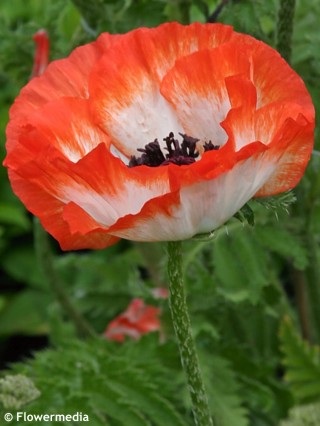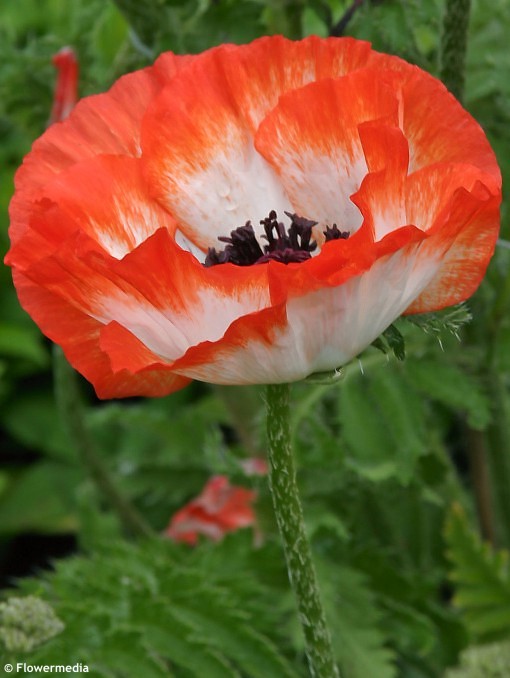Papaver orientale 'PICOTÉE' oriental poppy
size/type
mid-sized perennial,mid-sized perennial
usual height
0,6-0,8m
usual width
0,4-0,6m
leaves
deciduous broadleaf
colour of leaves
flowers
showy
colour of flowers
blooming time
May-June
location
full sun
soil type
neutral to alkaline
soil moisture requirements
dry and sharply drained (xeriscape)
USDA zone (lowest)
3 (down to -40°C)
winter protection
for zone 5+6

for zone 7

categorized
Papaver
Ornamental poppy belongs to a genus of about 70 species. They can be both long-lived perennials and annuals which re-seed readily. They are native to Central and South Europe, and some species can also be found in Asia, South Africa, North America, Australia, and even subarctic regions. While cultivation of the edible species p.somniferum has become difficult or even banned in many countries worldwide owing to opium contents in unripe seedheads, EU and its chamber responsible for food safety (EFSA) declared poppy safe owing to zero or marginal contents of hallucinogenic or habit-forming agents. That's why you can not only eat so many delicious poppy-seeds-based cakes and pastries, you can also see beautiful fields with white and mauve flowers in the Czech Republic.Description of the plant:
Oriental poppy is an extraordinary perennial with large, showy flowers atop thick, tall stems. Picotée is a gorgeous variety with white flowers with creased petals that have broad, frilled, orange-pink margins. Blooming begins from late May and lasts until late June. Basal leaves are hairy, pinnatisect (pinnate to fern-like), fresh green, and wither by midsummer. The whole plant usually becomes dormant until spring, but some plants may push up a few leaves in late summer or early autumn.Poppy grows in almost any well-drained soil, preferably medium fertile or poor, of neutral to alkaline pH (do not add peat). Well chosen fertilizer may enhance flowering but is not necessary. Fully hardy to about -40°C.
Last update 12-01-2009; 02-10-2022
QUICK PRICE OVERVIEW
CURRENTLY SOLD OUT














